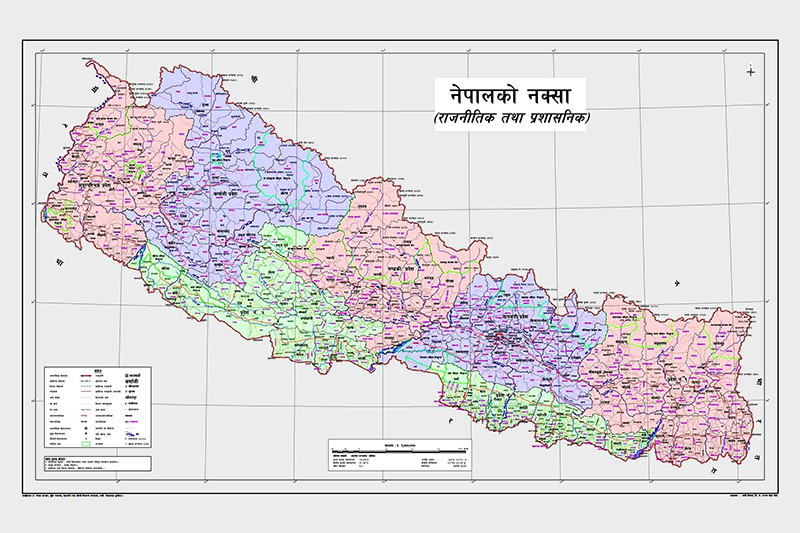Nepal's ruling party stresses dialogue with India to resolve territorial dispute
Kathmandu, June 2
Nepal Communist Party (NCP) lawmaker Narayan Kaji Shrestha urged India to sit for dialogue with Nepal to resolve Limpiyadhura, Lipulekh and Kalapani issues.
He welcomed Indian Defence Minister Rajnath Singh's remark about resolving border disputes with Nepal through dialogue and said dialogue should happen soon.
Delivering his speech during special hour in the National Assembly today, Shrestha, who is also the party's spokesperson, said recent statements of the Indian army chief and a former foreign secretary of India were regrettable.
The Government of Nepal has issued a new map depicting Limpiyadhura, Lipulekh and Kalapani as Nepal's territories and also presented a constitution amendment bill in the House of Representatives to amend Schedule 3 of the constitution to depict these territories in the coat of arms.
Indian army chief MM Naravane had recently said that Nepal might have raised the Lipulekh road construction issue at the behest of somebody else in an oblique reference to China. The Government of Nepal had objected to India's inauguration of the link road from Pithauragadh of Uttarakhand to Kailash Mansarovar in the Tibet Autonomous Region via Lipu Lekh.
He said those who made statements against Nepal should correct their statements, if they did not, then the Government of India should do so through its actions.
While some might question why Nepal did not reclaim Limpiyadhura, Lipulekh and Kalapani in the past, this is not the time to get bogged down with that question.
Rather, every Nepali needs to act unitedly to reclaim these territories, Shrestha argued.
He urged Nepalis to maintain restraint and seek solution to the boundary questions through diplomatic means. "We must be mindful that diplomacy is the first line of defence," he said and added that the agreement signed between India and China regarding Lipulekh in 2015 had paved the way for 'encroachment of Nepal's land' and China should clarify its position if it had make mistakes unintentionally.
"That agreement should not have been signed without Nepal's involvement," he added.
Shrestha said that Nepal had always remained an independent nation and its statements related to its sovereignty and territorial integrity should not be construed by India as anti-India expressions.
Shrestha said his party wanted revision of Nepal's 'unequal treaty' with India, including the 1950 Treaty of Peace and Friendship. He said relationship between Nepal and India was unique in the sense that they were multi-faceted and deep-rooted at the peoples' level.
He, however, said that his party was not in favour of having special relations with India. He said both Nepal and India should be ready to address each other's concerns.
He said the eminent persons group had submitted a consensus report and the Prime Minister of India should accept the report without any further delay. Relations between Nepal and India should proceed on the basis of the EPG report, he argued.
A version of this article appears in e-paper on June 03, 2020 of The Himalayan Times.






